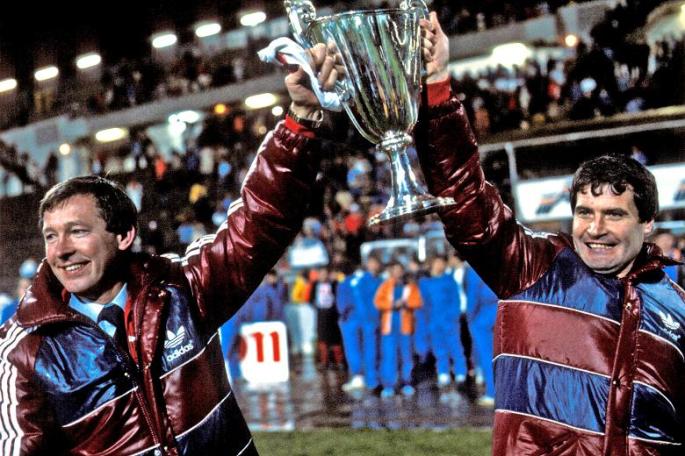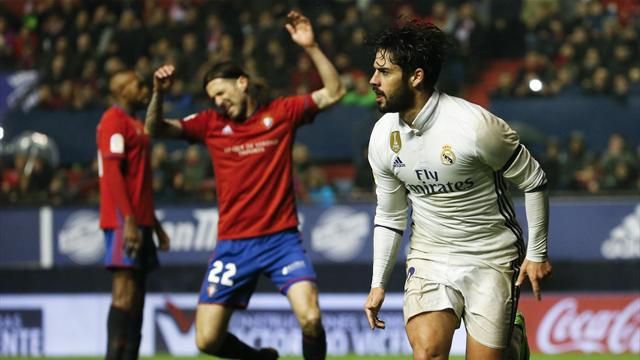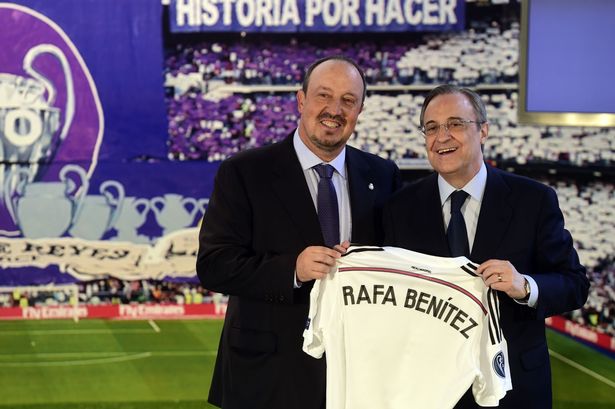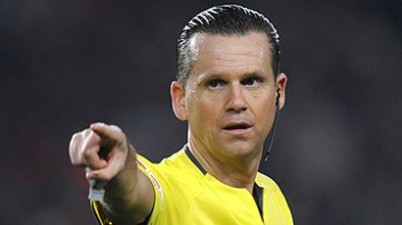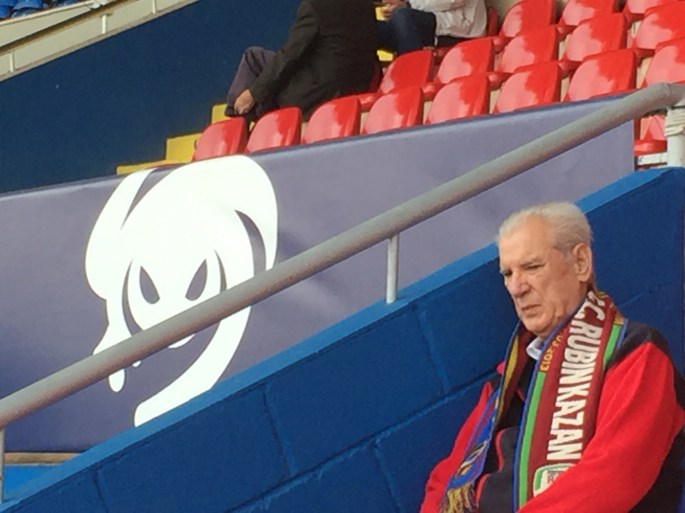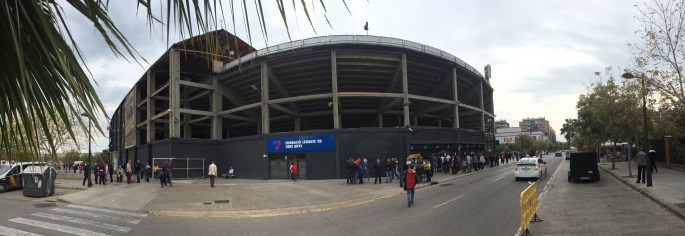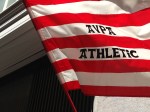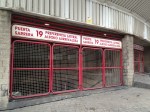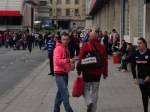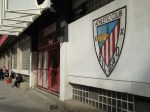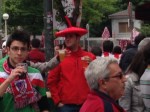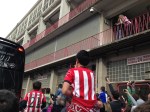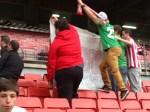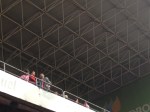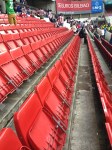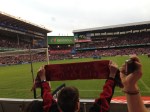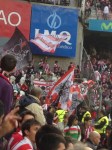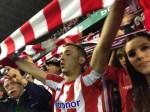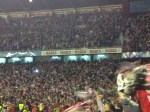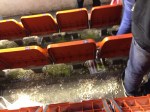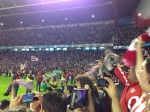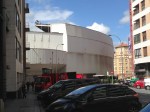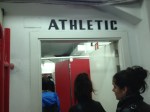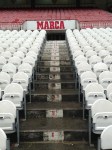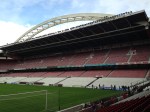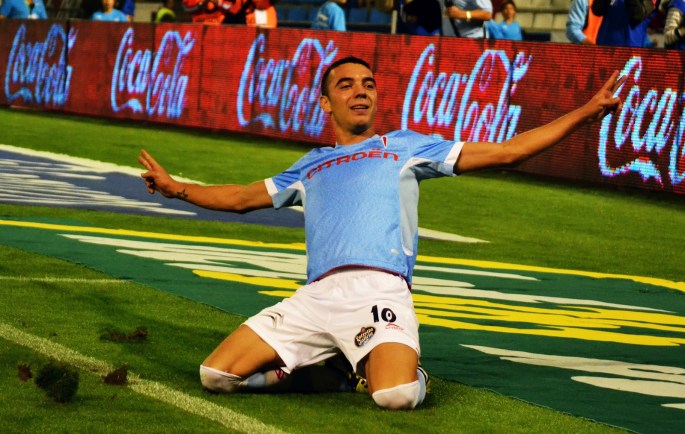Sir Alex Ferguson’s achievements over 27 years with Manchester United were legendary, but surely his finest hour came before he arrived at Old Trafford. A remarkable victory while in charge of a much smaller club, achieved at the expense of a true giant of football, puts all his subsequent glories into context.
Ferguson left the game with a poor record against Real Madrid. In six games against them as manager of United he won just once, and that wasn’t a glorious occasion for him as he still lost the tie: all three of his European ties against Real ended in elimination, the most recent being his Champions League swansong. But he faced Los Merengues on one other occasion, with a provincial Scottish side, and emerged with victory and his first European trophy.
Ferguson arrived at Aberdeen in 1978, having been sacked by Saint Mirren and lost his claim of unfair dismissal as an industrial tribunal described him as “particularly petty” and “immature”. The Buddies’ reward was to look on as he created a third power in Scottish football.
If the hegemony of Barcelona and Real Madrid bothers you, take a look at Scotland, where Rangers and Celtic transcend all else. Even the remarkable current circumstances in the Scottish game, with Rangers demoted for financial reasons, has only altered the balance to an extent: they continued to monopolise attention with their neighbours while working their way up the divisions, the SPL title a one-horse race in their absence.
Yet Ferguson’s Aberdeen broke their duopoly, winning three league titles, four Scottish Cups and the League Cup in eight years at Pittodrie. The east coast side, developed under his iron fist with his assistant, Archie Knox, featured many players who would feature prominently for Scotland during a period strong on promise but lacking when it came to substantial achievement. Many would go on to become significant figures in management, a testimony to the influence they came under during that glorious period.
Having made an impact in Scotland, Aberdeen went on the rampage in Europe. They’d already shown they meant business by testing European champions Liverpool as they defended their crown, but a subsequent run in the European Cup Winners Cup in 1983 was when Ferguson’s work came to fruition.
As one might expect, the Aberdeen fans travelled in droves, 14,000 of them cheerfully boisterous to the last and surely finding it hard to believe their side had landed such a remarkable date at Europe’s top table. Their side’s indefatigable spirit and genuine quality meant they were a force to be reckoned with though, but they were up against a side with great pedigree, of course.
Three years earlier Real had reached the European Cup final, where they were defeated by Liverpool. Now they were looking to end a European drought which stretched back to the 1966 European Cup victory of the Ye-yé team with a side featuring Jose Antonio Camacho, Uli Stielike, Santillana and Juanito.
They’d shown their quality in the quarter-finals when they were pitted against Inter. They fell behind at the San Siro, but Ricardo Gallego struck in the second half to earn a draw, and they had to show character at the Bernabeu as well. At half time Alessandro Altobelli’s goal had given Inter the lead, but the tie turned on a dramatic five minute period shortly after the break. José Antonio Salguero equalised, and then Santillana pounced to clinch a 3-2 aggregate victory.
The last four could have seen a clash with eternal rivals and defending champions Barcelona, but they feel to a shock defeat in the quarter finals at the hands of Austrians Rapid Vienna.
Toni Polster struck just four minutes into the first leg to raise the possibility that Rapid would complete a memorable double and eliminate both Spanish giants, but within two minutes Santillana had equalised. Still, Rapid struck back and took the lead again, only for Isidoro San José to clinch a 2-2 draw.
The second leg in Spain followed a familiar pattern. Once again Real struggled to finish the job after clinching a draw away from home; once again it was Santillana who came to the rescue.
He opened the scoring after just ten minutes, but Real failed to add to the lead and half way through the second half San José made amends for his first leg goal but putting the ball into his own net!
Real still held an advantage on away goals, but things were much more precarious now and they needed a couple of club legends to dig them out of trouble, Five minutes after San José’s moment of disaster Juanito put Real back in front on the night, and Santillana chipped in with another to ensure that Real went through comfortably…eventually.

Real obviously arrived as the favourites and European sophisticates, with Santillana deserving a winner’s medal to cap a fine European campaign which had seen him score seven goals, hitting the net in each of the four rounds. But Ferguson had filled his players with belief, and many have spoken subsequently of how he convinced them that Real were a weak team which they ought to beat.
His mind games extended to inviting Jock Stein, doyenne of Scottish management and the man who guided Celtic to their famous 1967 European Cup triumph over Inter, to accompany his side. Ferguson explained in his autobiography that Stein had told him to present Di Stefano with a bottle of whiskey before the match:
“Let him feel important,” said Jock, “as if you are thrilled just to be in the final.”
Stein’s inspirational presence also transmitted itself to the players, and Aberdeen started swiftly, and in the sixth minute Eric Black’s spectacular volley was tipped onto the bar by Agustín, the keeper making up for the mishit clearance which had allowed the opportunity to occur in the first place. It was to prove a temporary reprieve though, and Gordon Strachan’s corner was helped on by Alex McLeish to Black, who headed the ball in to give Aberdeen the lead
Their advantage would only last eight minutes, although the equaliser came about in fortuitous circumstances. Heavy rain had meant the match wasn’t certain to go ahead, and although efforts were made to clear standing water from the Ullevi pitch, it was still sodden throughout the game.
No doubt that inconvenienced Real in general terms as they were unable to move the ball around the pitch as they might have wished, but they profited from the conditions when Alex McLeish forgot to take the damp pitch into account and hit a horribly under-powered backpass from thirty yards out. Swiftly, Santillana latched onto it and raced around goalkeeper Jim Leighton, who lunged full length and pulled him down. Lucky for him that the red card for a professional foul wasn’t a mandatory punishment then: the referee pointed to the spot but took no further action, and Juanito lashed the ball home to make it 1-1.
Real pressed home their advantage and dominated the rest of the half, but couldn’t find a way through a stubborn defence marshalled well by Dons skipper Willie Miller.
Matters appeared to worsen for Aberdeen when they were forced to make a change at half time, Eric Black being replaced by John Hewitt. However, Hewitt would turn out to be the match winner.
He’d have to wait until extra time for his moment of glory though. Aberdeen recovered to enjoy the better of the second half, but Agustín denied a Strachan volley with his legs and then averted a late catastrophe when he pounced on a loose ball after he’d dropped a Peter Weir cross.
With just eight minutes of extra time left, Mark McGhee set off on a determined run down the left wing before slinging a perfect ball into the box, where Hewitt ran onto the cross without checking his stride and headed the ball past Agustín for the winner.
Simpson missed a glorious opportunity to put the tie beyond Real’s grasp, and could have been made to pay for it with seconds remaining. A free kick was awarded on the edge of the Aberdeen area which came to nothing but the referee demanded it be taken again as he wasn’t ready. With nerves shredded on the terraces, Salguero stepped up and lashed in a terrific low shot on the goalkeeper’s side – a proper toebuster which seared in a low trajectory before suddenly picked up height as it travelled towards goal. It just cleared the wall and looked goalbound, but whistled narrowly past the post and into the puddles behind the goal.
And that was that. Jim Leighton took the goal kick and the referee blew the final whistle. Aberdeen had overcome Real Madrid, the fledgling Ferguson had overwhelmed di Stefano, and a legend of the game had made his first real imprint on the European stage.
Meanwhile, Saint Mirren came fifth in the Scottish Football League.

